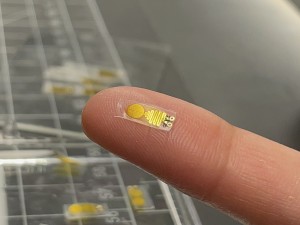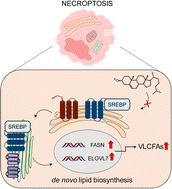2023-09-07 ノースウェスタン大学

Sensor on a fingertip
◆研究では、このデバイスを腎移植を受けた小動物モデルでテストし、通常のモニタリング方法よりも最大3週間早く拒絶反応の警告サインを検出することができることがわかりました。この追加の時間は、医師が早期に介入し、患者の結果と健康を改善し、臓器提供を保存する可能性を高め、臓器不足の危機に対応する手助けとなるでしょう。
<関連情報>
- https://news.northwestern.edu/stories/2023/09/first-device-to-monitor-transplanted-organs-detects-early-signs-of-rejection/
- https://www.science.org/doi/full/10.1126/science.adh7726
腎移植拒絶反応の早期発見のための埋め込み型生体電子システム Implantable bioelectronic systems for early detection of kidney transplant rejection
Surabhi R. Madhvapathy,Jiao-Jing Wang,Heling Wang,Manish Patel,Anthony Chang,Xin Zheng,Yonggang Huang,Zheng J. Zhang,Lorenzo Gallon,and John A. Rogers
Science Published:7 Sep 2023
DOI:https://doi.org/10.1126/science.adh7726
Editor’s summary
Organ transplantation can considerably extend the recipient’s life, but organ failure can occur at any time, especially if the host rejects the organ. Madhvapathy et al. developed a bioelectronics-based approach to track acute kidney organ transplant failure by attaching a wireless, soft electronics interface to transplanted kidneys that allows real-time continuous monitoring of organ temperature and thermal conductivity (see the Perspective by Zaidan and Lakkis). Using rat models, the authors demonstrated early detection of transplant rejection by tracking changes in normal cycles or an elevation in organ temperature. —Marc S. Lavine
Abstract
Early-stage organ transplant rejection can be difficult to detect. Percutaneous biopsies occur infrequently and are risky, and measuring biomarker levels in blood can lead to false-negative and -positive outcomes. We developed an implantable bioelectronic system capable of continuous, real-time, long-term monitoring of the local temperature and thermal conductivity of a kidney for detecting inflammatory processes associated with graft rejection, as demonstrated in rat models. The system detects ultradian rhythms, disruption of the circadian cycle, and/or a rise in kidney temperature. These provide warning signs of acute kidney transplant rejection that precede changes in blood serum creatinine/urea nitrogen by 2 to 3 weeks and approximately 3 days for cases of discontinued and absent administration of immunosuppressive therapy, respectively.


